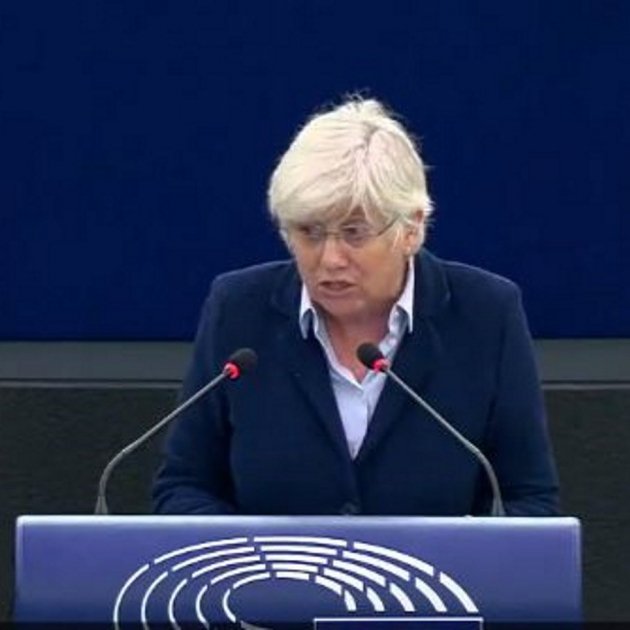Catalan MEP Clara Ponsatí has shown up former Spanish prime ministers José María Aznar and Felipe González and "their buddies on the boards" of companies in the Spanish energy market, in a speech to the European Parliament, in which she criticized the alarming rises currently occurring in Spanish electricity prices. In fact, her brief speech was a powerful exposé of the energy situation in Spain.
"The rampant escalation of energy prices is a direct threat to the EU's stability. Winter is coming and energy poverty will soon be widespread. The problem is especially acute in Spain, where the dependence on gas is now combined with the huge political power of the energy oligopoly. With Aznar, González and their buddies sitting on the boards of energy companies, the Spanish energy market is a textbook example of regulatory capture," she explained.
According to Ponsatí, the lesson that Spain gives regarding energy is "what not to do". “It includes grotesque initiatives like the taxation of self-production of families and SMEs,” she denounced. The former Catalan education minister warned that populists are taking advantage of this current emergency "as an opportunity to undermine progress towards the green transition". "But the Green Deal is the only way to cheaper energy access and to evade climate change." "The Commission must do much more. You need to be much more active in terms of transparency; consumers need to be able to understand energy bills more easily, so that society does not associate rising prices with the green transition. More action is needed on energy efficiency."
"And", concluded Ponsatí with special emphasis, "tolerance of revolving doors must end".
The term "revolving doors" refers to the situation in which the same people who hold legislative or regulatory roles in an industry also work for the companies in the industry that is being regulated. It is closely related to another term Ponsatí used: "regulatory capture" - when a government regulatory agency, created in the public interest, ends up advancing the interests of the industry it is supposed to control. "The Spanish energy market is a textbook example of regulatory capture," said the Catalan MEP, quoting the examples of former PMs like "Aznar, González and their buddies" who now sit on energy company boards.
Alarming October for energy prices
Meanwhile, records are again being set in electricity prices in the Spanish wholesale market, with rises at rates never seen before. In just 24 hours the price has risen 60 euros, climbing to 288.53 euros, a price that beats all records set so far, standing even 26% above the previous high price, reached this Wednesday, of 228.59 euros.
In fact, the price spiral in Spain is such that in the first seven days of October, the four most expensive days in the historical series of average power prices have already been recorded and the situation is even more worrying taking into account that the previous month, September, also saw new record prices set. Moreover, there is little to suggest that the trend will change in the coming months.
Compared to a week ago, this Thursday the price will be 52% higher, but the worst comparison is with the price of electricity a year ago, when the price was just 43 euros per MWh. That is, tomorrow's price of electricty in Spain will be seven times more expensive, that is, a 570% price hike in a year.
Looking at the price charged at each hour in the day, tomorrow the most expensive hour at which to consume electricity will be between 8 and 9pm when the price will be 319.03 euros per MWh, while the lowest price will be available between 4 and 5am when the cost will be 249 euros per MWh. It should be noted that even the lowest price tomorrow - at 4am - will far exceed the highest-ever average price set up till now - which is today's price.
